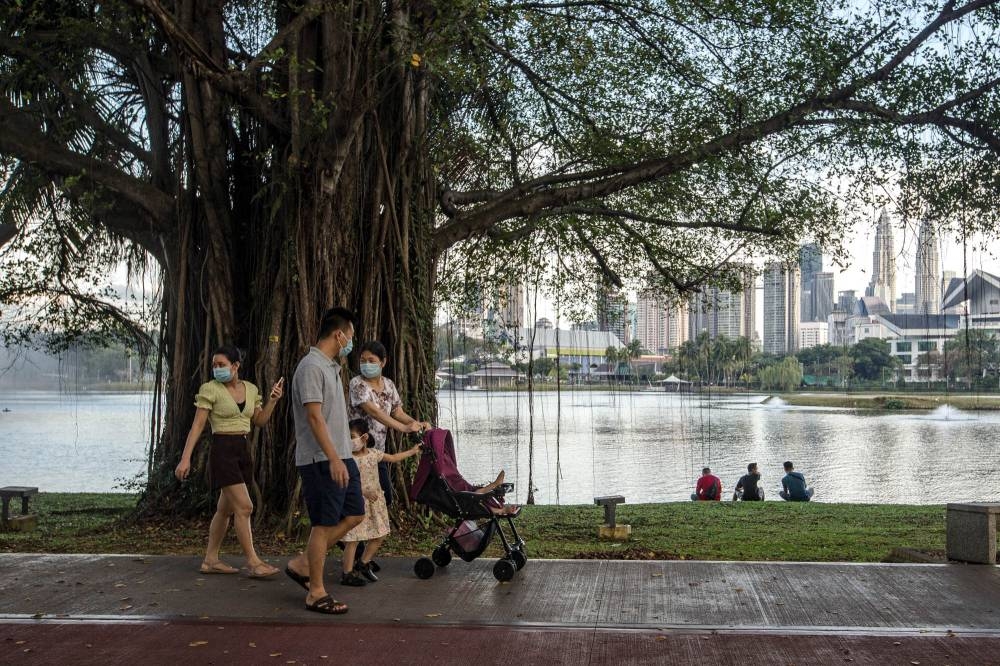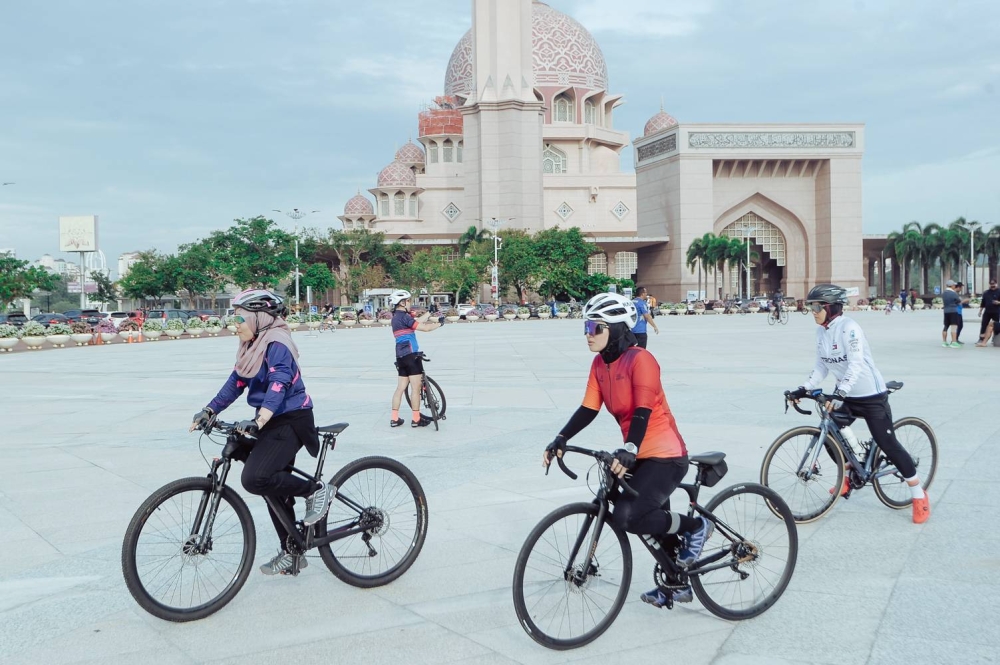KUALA LUMPUR, July 7 — After more than two years of battling the Covid-19 pandemic, the Malaysian government announced that the country will enter the endemic stage starting April 1, 2022.
The word “endemic” means the eradication of a disease is not possible and it will always be present in the community.
The community will need to adjust their lives to live with the presence of the disease while infected people are able to seek treatment at healthcare facilities when necessary.
There are other infections besides Covid-19 that are already endemic in the country such as dengue, flu, HIV, and hepatitis B.
Unlike the early stages of the pandemic, we now have effective measures against Covid-19 including powerful vaccines that can prevent individuals from developing severe forms of the disease and prevent deaths; and inexpensive rapid test kits which are able to reliably detect Covid-19 infections in a person.
Tried and proven public health strategies such as frequent handwashing, physical distancing, and the wearing of face masks continue to be emphasised by the Health Ministry as the country prepares to enter endemicity.
We now know that Covid-19 is largely transmitted when people breathe in air contaminated by droplets and tiny airborne particles containing the SARS-CoV2 virus.
The risk is higher when people are near each other, especially in an enclosed space.
Wearing a face mask significantly reduces the risk of transmission. It is imperative to wear good quality face masks for optimum protection.
What are the common types of masks?
Nowadays, consumers are spoilt for choice when buying face masks.
They now come in all shapes, sizes, colors, and costs.
What should we consider when choosing a face mask?
In terms of priority, one should first aim for filtration efficiency, followed by comfort, and aesthetics last.
Of course, the affordability factor needs to be considered.
Essentially there are four types of masks:
N95 respirator masks
These are the only NIOSH-approved masks in the market.
They have very high filtration efficiency but need to be fitted tightly around your face to work properly.
In terms of cost, these are more expensive.
The N95 may be reused up to five times.
Some N95 masks have built-in one-way valves to ease exhalation.
These are not recommended because although the wearer is protected from contaminated air droplets, if the wearer is Covid-19 positive, he or she can transmit the virus to others via the valve when exhaling.
The CDC recommends wearing N95 respirators when caring for someone with Covid-19, or is at risk for serious illness, or working in a high-risk job such as healthcare, when riding on public transportation for an extended time, or in crowded indoors spaces or outdoors if not up to date on vaccinations.
KN95 or KF94 masks
These are masks manufactured in China and Korea, respectively with similar or almost similar filtration efficiency as the N95 mask.
However, these are not NIOSH-approved and are usually not reusable.

Disposable surgical masks
Nowadays there are high quality surgical masks available that use special filters that can block up to 99 per cent of viruses and bacteria-containing droplets (usually indicated by the VFE/BFE 99% label).
A good quality disposable surgical mask which indicates VFE/BFE/PFE 99% and fits snugly around your mouth and nose offers a good balance between protection and comfort.
Surgical masks should be replaced daily or as soon as it gets dirty, whichever comes first, and be disposed of properly.
Cloth masks
These are washable and reusable.
Choose cloth masks that have multiple layers of fabric and fit snugly over your nose and mouth.
Compared to the other masks, cloth masks offer the least protection but are still better than wearing no mask.
Some cloth masks sewn in metallic clips to fold over the nose bridge for a better fit.
These are preferred over simple cloth masks.

What do the abbreviations on the mask packaging mean?
Depending on the country of origin, reputable manufacturers of good quality masks market their products in properly sealed packaging or boxes labelled with quality indicators like N95, KN 95, KF94, FFP2 or 3, and DS2 FFR.
These letter/s in the abbreviation refer to the quality standards of countries while the number indicates the filtration efficacy of the mask.
For example, the N95 respirator has a filtration efficiency of 95 per cent or more in blocking fine particles of 0.75 µm in size.
Similarly, KN, KF, FFP and DS2 refer to the quality standards of China, Korea, Europe, and Japan, respectively, while the corresponding letters refer to the filtration efficacy of the respirators.
Some manufacturers of surgical masks include quality indicators on their product such as Bacterial Filtration Efficiency (BFE), Particle Filtration Efficiency (PFE) and Virus Filtration Efficiency (VFE) followed by either 95 per cent or 99 per cent to indicate their filtration efficiency.
In summary, the higher the number, the better the filtration efficacy.
Always purchase your masks from reputable manufacturers as fake and masks of dubious quality are being sold widely in stores and online.
Fake masks often do not have information of their filtration efficiency and are poorly packed.
Filtration efficiency and comfort
A good face mask has two basic functions.
It reduces potentially infective airborne particles and droplets from entering your air passages; and if you are the infected person, the mask you wear protects infective airborne particles and droplets from your air passages escaping into the community and infecting others.
In terms of filtration efficiency, loosely woven cloth masks offer the least protection but are most comfortable to wear.
The best protection comes from wearing NIOSH-approved masks like the N95 mask, but it is uncomfortable to wear for a prolonged period.
The trick is to strike a balance between efficiency and comfort.
Conclusion
It is important to note that no matter how good a mask is, it is only effective if it is worn properly. The best possible protection against Covid-19 is strict adherence to SOP including being vaccinated and boosted and wearing quality masks with high filtration efficiency.
* Prof Dr James Koh Kwee Choy is Professor of Medicine and Head of Division of Medicine at the School of Medicine, International Medical University, Malaysia. He also serves as an Infectious Diseases Consultant at Hospital Tuanku Ja’afar Seremban.






















